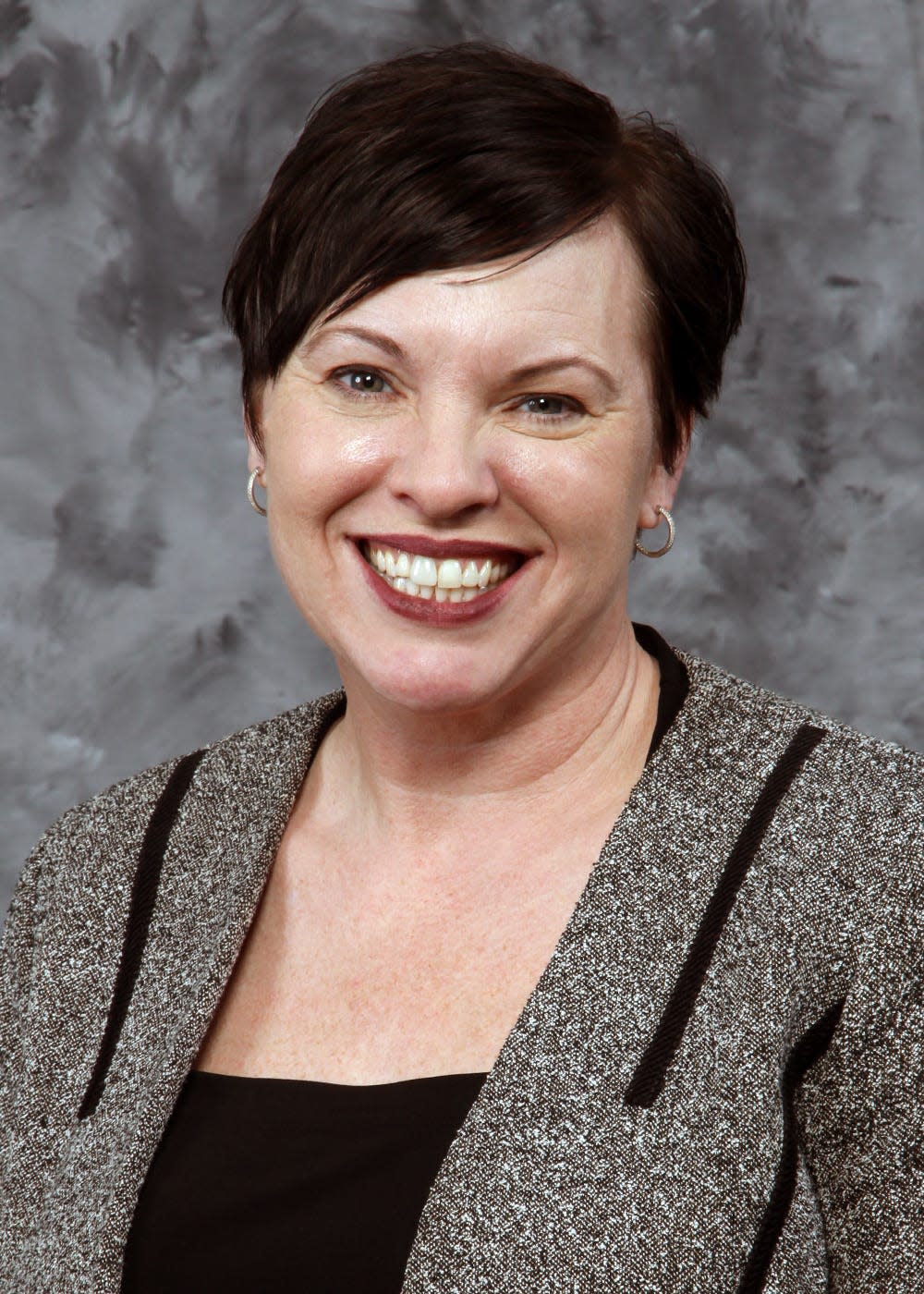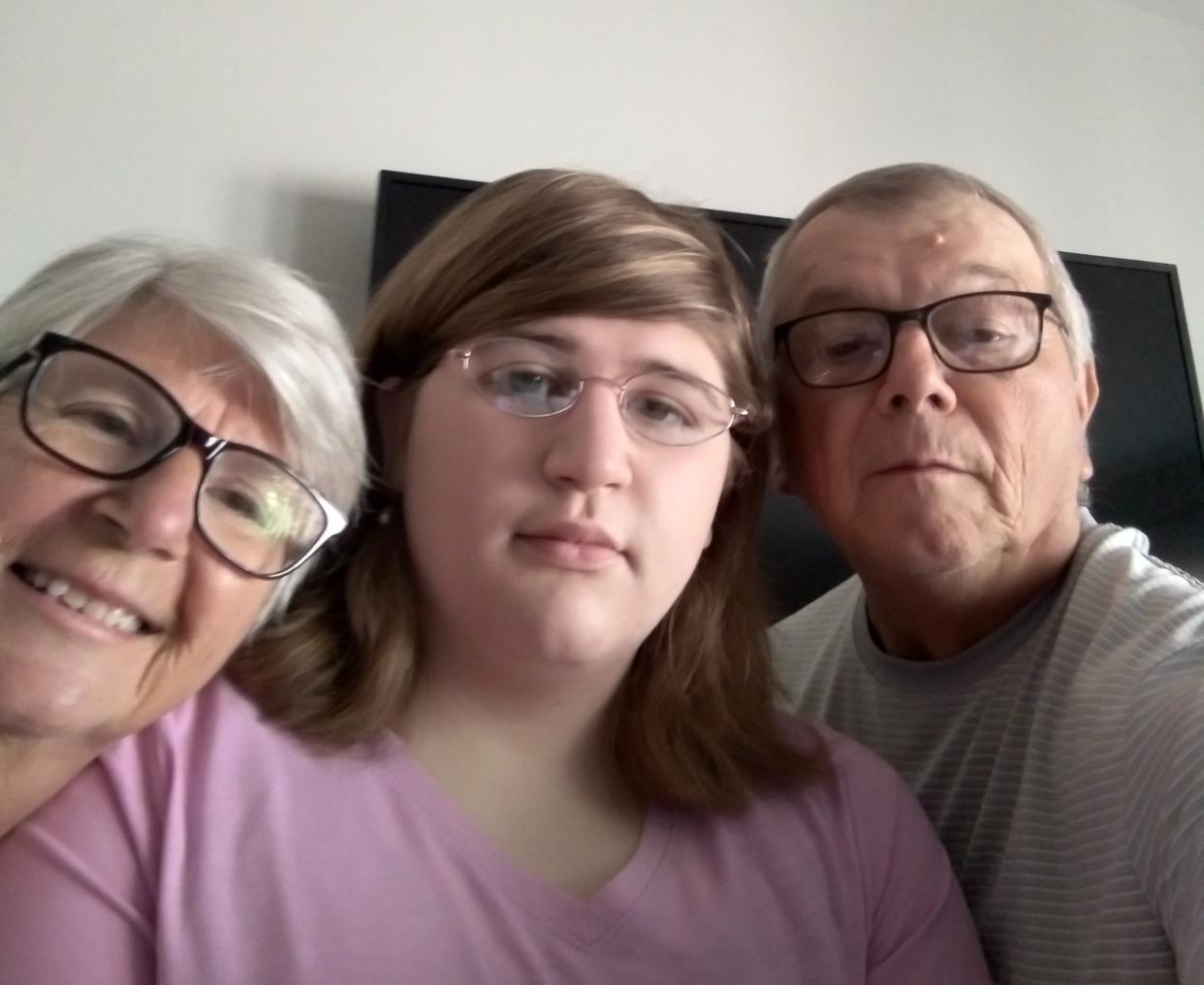Michigan is first state to ease kinship care rules, but most caregivers won't benefit
When Lisa Grodsky turned on the news during her lunch break and heard an announcer say kinship caregivers in Michigan will now get the same support foster parents do, she practically choked on her sandwich.
Grodsky, who runs a support group for grandparents raising grandchildren through the Oakland Livingston Human Service Agency, hears heart-wrenching stories every month about kinship caregivers who took in children and are living in poverty because of it.
Good thing she has that little button that lets her rewind live TV, because Grodsky had to play that news story again. “I couldn’t believe what I was hearing: that kinship caregivers will be treated equally — financially — like foster care,” said Grodsky. “And I just thought, no, no, no, no, no.”
Grodsky had already read about a new federal rule, which Michigan will be the first state in the nation to implement, that allows for a less burdensome approval process for kinship caregivers and the allocation of federal funds to support them. But she hadn’t paid much attention. She knew it only applied to children CPS had removed from their parents and placed after March 4. And only to kin who are licensed as foster parents.
Currently, that’s only 11% of kinship caregivers in Michigan. The rest have legal custody, power of attorney, guardianship, notarized authority or kinship care by family agreement – undocumented to keep things out of the court system. It’s a paperwork jungle out there.
For the 89% of kinship caregivers who aren’t licensed, this new rule does nothing to provide them the financial support the state gives foster parents — support they say they desperately need and deserve.
But Grodsky wasn’t the only one who heard the simplified version of the news. Soon, grandparents from around the tri-county area were calling her, asking if this was finally it. If they would finally get some financial help to pay for the grandchildren they were raising.
And she had to tell them: No, no, no, no, no.
Michigan is the first state to get the go-ahead for kin-specific approval process
Around 40% of foster parents in Michigan are kinship caregivers, raising children they’re connected with to keep them from placement with strangers. And until recently, these foster parents – many of whom are grandparents to the children they take in – had to go through the same licensure process as those strangers.
A federal rule passed in September changed that requirement, simplifying and expediting the process of getting approved as a kinship caregiver. Last month, Michigan became the first state in the nation to receive the go-ahead to implement the policy, following the Salt River Pima-Maricopa Indian Community in Arizona.
“I’m really excited to see the movement forward at the federal level and set a standard for other states to follow,” said Michigan Department of Health and Human Services Director Elizabeth Hertel. “We know that placing families with relative providers is better for those outcomes so I'm just really excited to see this step forward in supporting families in the system.”

Rule reflects a culture shift in child welfare
The new rule allows Michigan to create a separate approval pathway for kinship caregivers that Elyse Welser, a foster care program manager with Bethany Christian Services, said is much less of a burden than the “grueling process” other foster parents must go through to earn licensure — they are required to attend an orientation, complete more than 30 hours of training, submit an application, provide references, submit to a home evaluation and cough up medical information.
Foster care workers can now proceed with placing a child with kin after finishing a state approval process that includes background checks and fingerprinting, though Welser said they still recommend kinship caregivers go through foster parent training.
“It’s just a lot of work and a lot of paperwork and extra requirements that make it very difficult when someone already has their family in crisis; they just added children to their home, probably with very little warning,” said Emily Schab, vice president of regional operations at Bethany Christian Services. “I think this kinship- or relative-specific licensing process will help us tailor and better meet those specific needs.”
The change aligns with federal priorities “to keep families together and increase equity in the child welfare system,” the Department of Human Services announced.
Children placed with extended family members or close family friends are better able to stay connected with their siblings, friends, culture and community. Placements tend to be more stable, with better health, educational and social outcomes for kids.
Child welfare professionals said making it faster and easier for kin to get approved signals a strong commitment on the part of the state to keep children with family until they can reunify with a parent.
“I think that the changes in the legislation are just emphasizing and allowing the state to really continue to push forward and move in a kinship-first culture within child welfare,” Welser said.
‘Our hearts are in a different place’
The new rule also allows federal funds to be spent on paying kinship caregivers a maintenance payment. Those in Michigan say the change will be felt by the state, not caregivers; since 2019, Michigan has provided unlicensed kinship caregivers with the same monthly payments licensed foster parents receive.
Those payments drove the number of children placed with kin from 35% of the child welfare population up to 50% or higher, according to Jessica Sweet, responsible for kinship efforts within MDHHS's children's services agency. "That, I would say as far as data goes, is really the best indicator that I could say of why it's so important to financially support our kinship providers equally, from placement," Sweet said in a webinar on kin-specific licensing.
With the new rule, that money won't have to come from state accounts.
“Michigan has been leading in the country, supporting unlicensed kin caregivers for children who are in the state welfare system, and we've been using our state funds,” said Hertel. “So we're really excited to see this rule put in place so that we can start using our federal funds to support these families.”
Health and Human Services Secretary Xavier Becerra said the approval of Michigan’s plan aligns with the Biden administration’s priorities “to keep families together and increase equity in the child welfare system.”
But this new rule supports only family members who are willing to get licensed as foster parents. Not all of them are.
Craig Nash, a grandfamily advocate who is raising his granddaughter, says besides the financial benefit, he understands why kinship caregivers wouldn’t want to be licensed.
“There is a reluctance with some of the caregivers to enter into this type of process because, you know, they just want their independence,” Nash said. “And yet they definitely need the support.”
That was one consideration for Jan Wagner, another advocate who is also raising her granddaughter. She said kinship caregivers shouldn’t have to answer to MDHHS in order to get training and support.
“I'm not a big supporter of families having to be under control of child welfare,” Wagner said. “We're different and our hearts are in a different place – our lives are in a different place.”
More: Growing number of grandparents face crushing costs as they raise kids
More: Michigan takes foster kids' federal benefit money and reimburses itself for their care
No going back for services
Some kinship caregivers, many of whom are making quick decisions to avoid child welfare involvement, are advised not to become foster parents but to go another route – guardianship, for example. They lose out on foster care payments before they even know they’re an option.
Wagner was advised by a Child Protective Services worker to become her granddaughter’s guardian lest the toddler end up in the child welfare system and out of her reach. Wagner hightailed it to the court to make it official. “No one told me that once I got guardianship there was no going back for services,” she said.
Wagner had to go back to work just to cover day care costs and spend down the couple’s 401(k) accounts to qualify for Medicaid and food stamps.
“That's how families get into the situation like we are,” Wagner said. “And there are more unsupported, uncounted, hidden grandparents, aunts, uncles, siblings caring for relatives than there are actually licensed CPS cases.”
And so, while she’d never change raising her granddaughter, whom she later adopted, Wagner does think there needs to be a separate but equal option for kinship caregivers like her.
“This new rule would never touch a family like mine anyway,” Wagner said. “I’m saying, let’s find a way to get the funding without getting the licensing.”

Grodsky said while the new rule affects the smallest slice of kinship caregivers, it was the right place for the state to start. And hopefully, she said, grandfamilies can garner more attention and support soon.
Michigan owes it to them, she said. “They should recognize what savings these types of kinship caregivers are providing to our state,” she said. Kinship caregivers nationwide save the child welfare system more than $6.5 billion in formal foster care costs.
Grodsky is glad that at least the new rule has people talking about kinship care – something, she said, that even those providing it don’t always know has a name.
“That is a silver lining, that we’re talking about it,” Grodsky said. “What isn’t the silver lining is that a lot of kinship caregivers … are feeling very robbed.”
Jennifer Brookland covers child welfare for the Detroit Free Press in partnership with Report for America. Make a tax-deductible contribution to support her work at bit.ly/freepRFA. Reach her at jbrookland@freepress.com. Submit a letter to the editor at freep.com/letters.
This article originally appeared on Detroit Free Press: Michigan is first state to give kin separate foster licensing process
